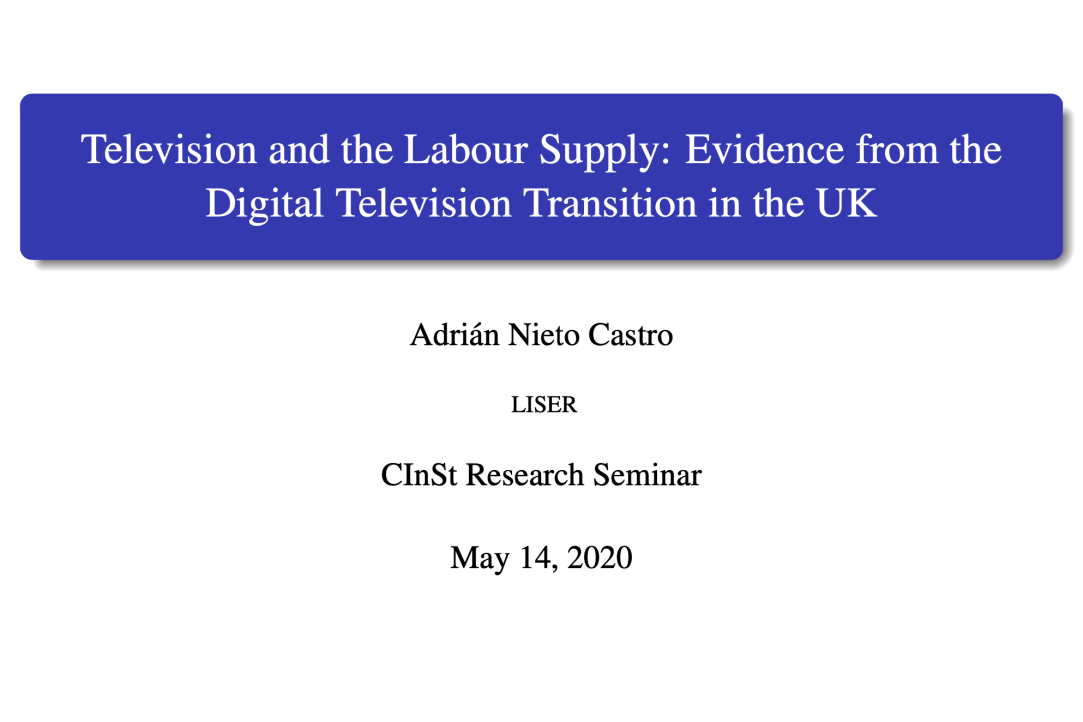Does digital television increase the probability of employment?
Adrian Nieto presented his paper "Television and the Labour Supply: Evidence from the Digital Television Transition in the UK" on the regular CInSt research seminar on May 14. The author exploits exogenous variation in the date of transition from analogue to digital television signal in the UK to estimate the causal effect of television on the pobability of employment and reveal potential mechanisms.

The author finds that the digital transition increases the probability of employment. The impact is driven by mothers and is due to an increase in part-time and self-employment. The effect increases with the number of children in a household and when the parent does not cohabit with a partner.
A possible explanation for these results is that television keeps children busy, reducing the amount of housework that parents need to do and allowing them to focus on their careers. The author tests whether the digital transition reduces the time that individuals dedicate to housework and shows that this is the case for mothers but not for fathers and non-parents. The author finds no effect on time allocation other than via housework.
You can watch a seminar on YouTube.
